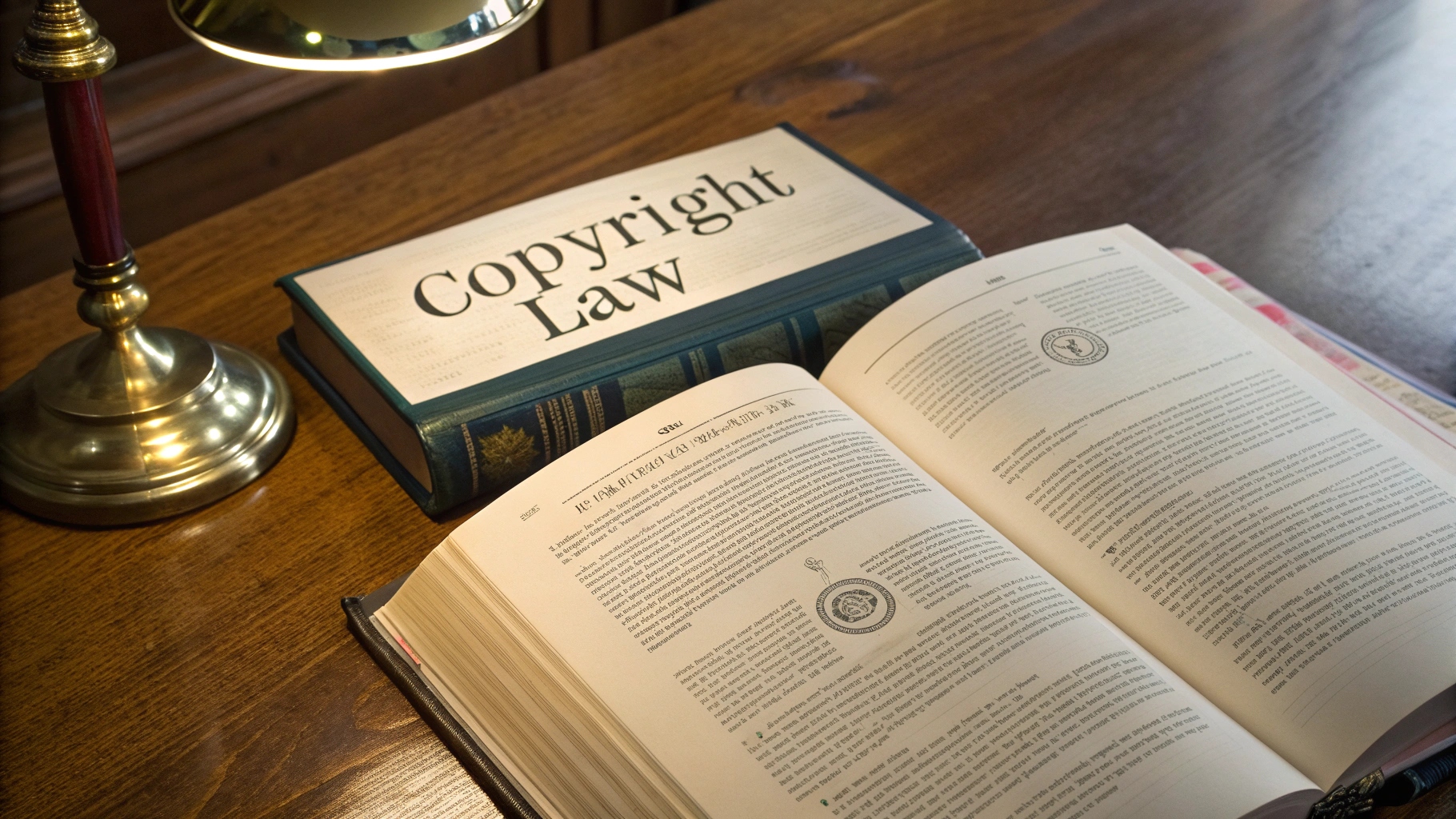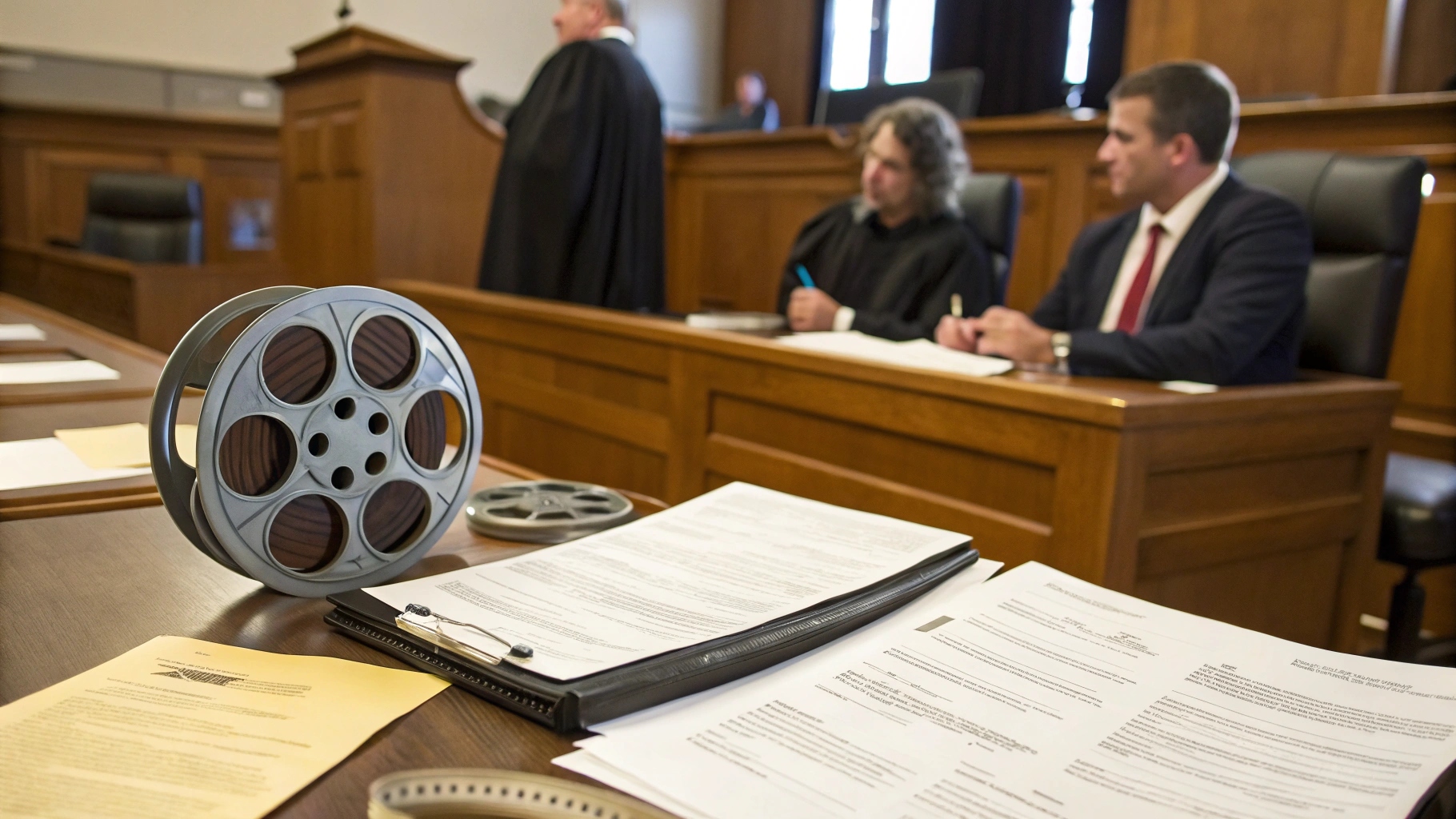Discover the essentials of copyright laws in the entertainment industry. Learn how they impact filmmakers and content creators, protect intellectual property, and ensure creative integrity.

Introduction
In the vibrant world of entertainment, creativity knows no bounds. However, with creativity comes the responsibility to protect original works and respect the intellectual property of others. Copyright laws serve as the backbone of this protection, offering legal safeguards to filmmakers, content creators, and artists. Understanding copyright laws is not just crucial—it’s essential to thrive in an industry where intellectual property forms the crux of success.
This guide delves deep into copyright laws in the entertainment sector, answering your most pressing questions, exploring their impact, and providing actionable insights to help you navigate this complex terrain.
What Are Copyright Laws?
Copyright laws are legal provisions that grant creators exclusive rights to their original works, including movies, music, scripts, and more. These laws empower creators to control how their work is used, distributed, or adapted. Key rights under copyright laws include:
- Reproduction Rights: The right to reproduce or make copies of the work.
- Distribution Rights: The right to sell or distribute copies to the public.
- Adaptation Rights: The right to create derivative works based on the original.
- Public Performance Rights: The right to perform the work publicly.
Why Are Copyright Laws Important for Filmmakers and Content Creators?
Copyright laws are vital for safeguarding the originality and marketability of creative works. Here’s why they matter:
- Protecting Original Ideas: Copyright prevents unauthorized use of your work, ensuring you retain control.
- Ensuring Revenue Streams: By securing exclusive rights, creators can monetize their work through licensing, sales, and royalties.
- Encouraging Innovation: Protection fosters a culture where creators can innovate without fear of plagiarism.
- Legal Recourse: Copyright offers a foundation for legal action against infringement, providing creators with a mechanism to address violations.

Key Components of Copyright Laws in the Entertainment Industry
1. What Qualifies for Copyright Protection?
For a work to qualify, it must be:
- Original: Reflecting independent creativity.
- Fixed in a Tangible Medium: Documented in a physical form (e.g., a script, recording).
2. Duration of Copyright Protection
Copyright duration varies but often lasts for the creator’s lifetime plus 70 years. For works created for hire, it extends 95 years from publication or 120 years from creation, whichever is shorter.
3. Fair Use Doctrine
Fair use allows limited use of copyrighted works without permission under specific conditions, such as for criticism, news reporting, teaching, or research. Factors determining fair use include:
- Purpose of use (commercial vs. educational).
- Amount of work used.
- Impact on the work’s market value.
Common Copyright Challenges in the Entertainment Industry
1. Plagiarism and Copying
High-profile cases of alleged copying, like Disney’s recent lawsuit over “Moana,” highlight the risks of failing to establish originality.
2. Unauthorized Streaming and Distribution
The rise of digital platforms has increased piracy, affecting revenue streams for creators.
3. Music Licensing Conflicts
Filmmakers often face challenges securing licenses for music, which can lead to legal disputes.
4. International Copyright Issues
Copyright laws vary globally, creating hurdles for content distributed across borders.
Steps to Ensure Copyright Compliance
- Secure Permissions: Always obtain written consent for using copyrighted material.
- Invest in Licensing: Purchase appropriate licenses for music, footage, and images.
- Educate Your Team: Train your production team on copyright basics to avoid inadvertent violations.
- Leverage Contracts: Use contracts to define ownership rights clearly when collaborating.
- Audit Your Work: Regularly review projects for potential copyright issues before publication.
The Future of Copyright in the Digital Age:
As technology evolves, so do copyright challenges. The rise of artificial intelligence, deepfakes, and blockchain-based digital assets like NFTs are reshaping the landscape. Staying informed and proactive is critical to navigating these changes.
Conclusion
Understanding copyright laws is no longer optional for filmmakers and content creators—it’s a necessity. By protecting your work and respecting others’ intellectual property, you not only safeguard your career but also contribute to a more innovative and ethical entertainment industry.
Equip yourself with the knowledge and tools to navigate this complex yet vital aspect of your creative journey. Remember, copyright isn’t just about legality; it’s about valuing creativity.
FAQs:
1. How Do I Protect My Work?
- Register your work with the U.S. Copyright Office.
- Use copyright notices on all published material.
2. What Should I Do If My Copyright Is Infringed?
- Gather evidence of infringement.
- Consult a copyright attorney for legal recourse.
3. Do I Need Permission for Adaptations?
Yes, adaptations require explicit permission from the original copyright holder unless the work is in the public domain.
4. What Happens If I Violate Copyright Laws?
Penalties can range from monetary damages to legal injunctions or imprisonment in severe cases.


Pingback: Lawsuit Against Disney: Disney Faces $10 Billion Lawsuit Over 'Moana' Franchise Allegations - USA Varthapedia - Latest News, Insights, and Updates Across America
Pingback: 8 Budget-Friendly Travel Destinations in Winter - USA Varthapedia - Latest News, Insights, and Updates Across America
Pingback: "7 Shockingly Easy Online Side Hustles to Start in 2025 (No Skills Needed!)" - USA Varthapedia - Latest News, Insights, and Updates Across America
Pingback: 12 Money Rules You Can Break Without Feeling Guilty - USA Varthapedia - Latest News, Insights, and Updates Across America